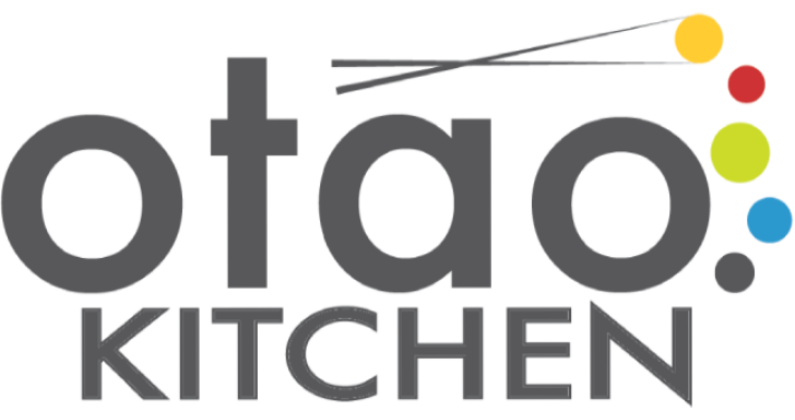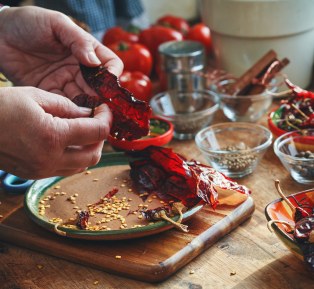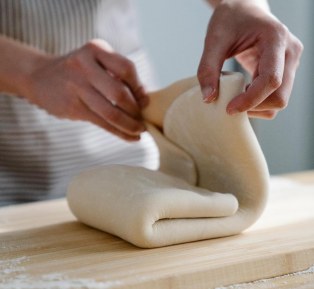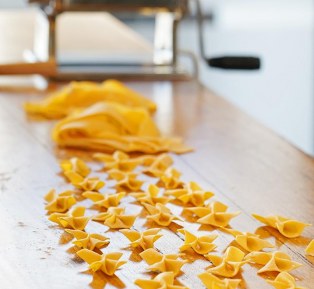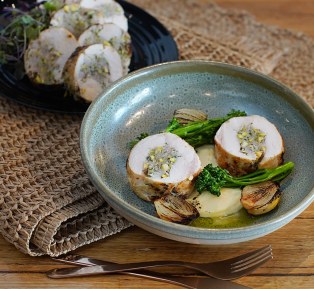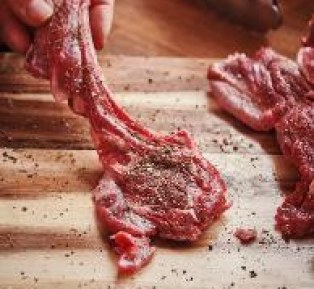
Culinary Inspiration by Otao Kitchen
Cook . Connect. Celebrate
At Otao Kitchen, we believe cooking is one of the most powerful ways to connect—with yourself, your loved ones, and the world around you. It can put a smile on your face, bring family and friends together, and create memories that last a lifetime.
But cooking is more than just connection—what you choose to cook and eat impacts your health and the health of the planet. That’s why we’re passionate about making it as easy and enjoyable as possible for everyone to experience the joy of good, home-cooked food.
“Cook to Connect” is at the core of everything we do. Through our blog, food experiences, and global travel inspiration, we explore the deep relationships between cuisine, culture, and community. From vibrant street food across the globe to time-honoured family recipes passed through generations, we share with you the stories, flavours, and traditions that shape the way the world eats.
Here, you’ll find:
Practical cooking tips and techniques
Authentic global recipes
Cultural and culinary insights
Event planning advice
Kid-friendly cooking inspiration
Travel stories and destination food guides
Seasonal celebrations and global food festivals
Whether you're in your home kitchen or exploring a faraway land, we’re here to help you cook with purpose—and connect with the world through food.
Varieties Of Thai Curry Pastes
Thai food is popular all over the world, and the vast assortment of Thai curries are some of the most beloved. Usually served with steamed jasmine rice, yellow, green and red Thai curries can be cooked with all kinds of vegetables, meat or seafood. They’re so versatile that these pastes, made from fresh herbs, spices and aromatics can also be used to marinate, add to soups or give a flavour kick to noodles or rice dishes. The difference between each of these colourful curries may be confusing at first, but we’ll be running through their different core ingredients and flavour profiles to help you find your favourite!
Discovering the Rich Flavours and Traditions of Thai Food
Discovering the Rich Flavours and Traditions of Thai Food
Thai cuisine is one of the most celebrated culinary traditions in the world — and for good reason. Its vibrant flavours, artistic presentation, and deeply rooted cultural significance make Thai food both unforgettable and unique. While it shares core ingredients with other Southeast Asian neighbours — such as chilli, garlic, ginger, lemongrass, fish sauce, palm sugar, and lime juice — Thai food has carved out a flavour profile that is entirely its own.
The Heart of Thai Cooking: Balance and Harmony
At the heart of Thai cooking lies the principle of balance. Every Thai dish is a delicate and deliberate orchestration of sweet, sour, salty, and spicy elements. Rather than one taste dominating the dish, Thai cooks strive to ensure that each flavour note is present and in harmony. For instance, palm sugar may mellow the saltiness of fish sauce, while lime juice or tamarind adds acidity to brighten the overall flavour. Herbs such as lemongrass and galangal (a cousin of ginger) infuse dishes with aromatic depth, often softening the intensity of chillies or garlic.
The skill of a Thai chef lies not just in technique but in their intuitive sense of proportion — knowing how to balance sharp heat with cooling sweetness, or round out saltiness with citrus tang. This philosophy makes every dish feel dynamic and alive, awakening every part of your palate.
Making the Best Asian Stocks: The Secret to Incredible Soups, Stews, and Sauces
Making the Best Asian Stocks: The Secret to Incredible Soups, Stews, and Sauces
In the heart of every memorable bowl of pho, ramen, miso soup, or laksa lies a humble but mighty ingredient: stock. At Otao Kitchen, we believe that mastering the art of Asian stocks is essential for any aspiring home cook or chef. Whether you're whipping up a rich pork tonkotsu, a delicate seafood broth, or a nourishing chicken congee, a well-crafted stock is the foundation on which great flavour is built.
Having a good stock or broth is important in producing the best soups, stews, sauces and other dishes. It’s the foundation, or base layer, where you can begin to build flavour and umami. Obviously, making your own is time-consuming, but a quality homemade stock far surpasses a store-bought one.
In this article, we’ll explore everything you need to know about making traditional and Asian-style stocks – from choosing the right bones to understanding simmer times, aromatics, and insider tips from our Otao Kitchen masterclasses.
Herbs and Spices in Vietnamese Cooking: The Aromatic Soul of Every Dish
Herbs and Spices in Vietnamese Cooking: The Aromatic Soul of Every Dish
Vietnamese cuisine is renowned for its vibrant flavours, aromatic freshness, and harmonious balance. While many global cuisines rely heavily on fats or heavy sauces, Vietnamese cooking leans into herbs, spices, and aromatics to deliver depth and complexity. Whether you're exploring a warming bowl of pho, a crunchy banh xeo, or a zesty goi salad, you'll find that herbs and spices play a starring role—not just as garnishes, but as essential ingredients.
Why Herbs and Spices Matter in Vietnamese Food
Vietnamese cooking uses salt, sugar, pepper, garlic, and onion like most cuisines, but what sets it apart is its liberal use of fresh herbs. In many dishes, herbs act as vegetables—the base of soups, stir-fries, salads, and stews. The contrast between hot and cold, crunchy and tender, sweet and spicy is built from the ground up with these fresh, flavour-packed ingredients.
Food Of Vietnam
Vietnamese cuisine is one of the most diverse and vibrant in the world. It uses an enchanting mix of food from colonial visitors, native ingredients and traditional cooking techniques. Many aspects of climate, trade, history and immigration has influenced the food of Vietnam we know today.
Our Favourite Cooking Oils – How to Choose the Right One for Your Dish
Our Favourite Cooking Oils – How to Choose the Right One for Your Dish
When it comes to cooking, choosing the right oil can make a big difference in both flavour and health. At Otao Kitchen, we love using a variety of oils in our classes and recipes. Whether you're pan frying, stir frying, baking, or finishing a dish with a drizzle, it’s important to choose an oil that suits the method.
One of the most important factors is an oil’s smoke point—the temperature at which it begins to break down and produce smoke. Heating oil past its smoke point not only spoils the flavour, but can degrade nutrients and release harmful compounds known as free radicals.
Here are our favourite cooking oils and how we use them at Otao Kitchen.
Wok & Pan Guide
Woks
If I had to choose one all-inclusive cooking tool, I would choose a wok. A wok is a traditional Asian pan used for cooking quickly at high temperatures. Typically, it gets used for stir-frying, boiling, braising, deep-frying and steaming. You can also do most of this with a regular pan or skillet, however a wok is thin and large, making it very heat efficient and easier to use when cooking Asian foods.
Food Hygiene and Safety at Home: Your Ultimate Guide to Preventing Food Poisoning
Food Hygiene and Safety at Home: Your Ultimate Guide to Preventing Food Poisoning
Each year, millions of people fall ill from foodborne illnesses, often mistaking the symptoms for the flu. But food poisoning can be much more severe—causing long-term health complications, especially for vulnerable groups such as pregnant women, older adults, and people with weakened immune systems.
Practicing good personal hygiene and food safety at home is one of the most effective ways to prevent these illnesses. Bacteria that cause food poisoning can live on your hands, clothing, hair, and even healthy-looking skin. If you touch your nose, mouth, or hair, then prepare food without washing your hands, you're spreading harmful microbes directly into your meals.
In this comprehensive guide, we'll cover the four golden rules of food safety—Clean, Separate, Cook, and Chill—plus personal hygiene, storage, and reheating tips to keep you and your family safe and healthy in your kitchen.
The Knives We Use
Whether you are new to cooking or experienced in your kitchen, mastering knife skills is not only important for keeping you safe but will make your recipes that much better.
You may also want to try
Fold & Flow - MFWF
2 Hours
$157
Sauces, Fermentation & Pickling Specialties
4 hours
$317
Bakery Specialties
4 hours
$317
Pastry and Dessert Specialties
4 hours
$317
Vegetable & Plant-Based Mastery
4 hours
$317
Seafood Mastery
4 hours
$317
Poultry Essentials
4 hours
$317
Pork and Game Essentials
4 hours
$317
Beef and Lamb Essentials
4 hours
$317
